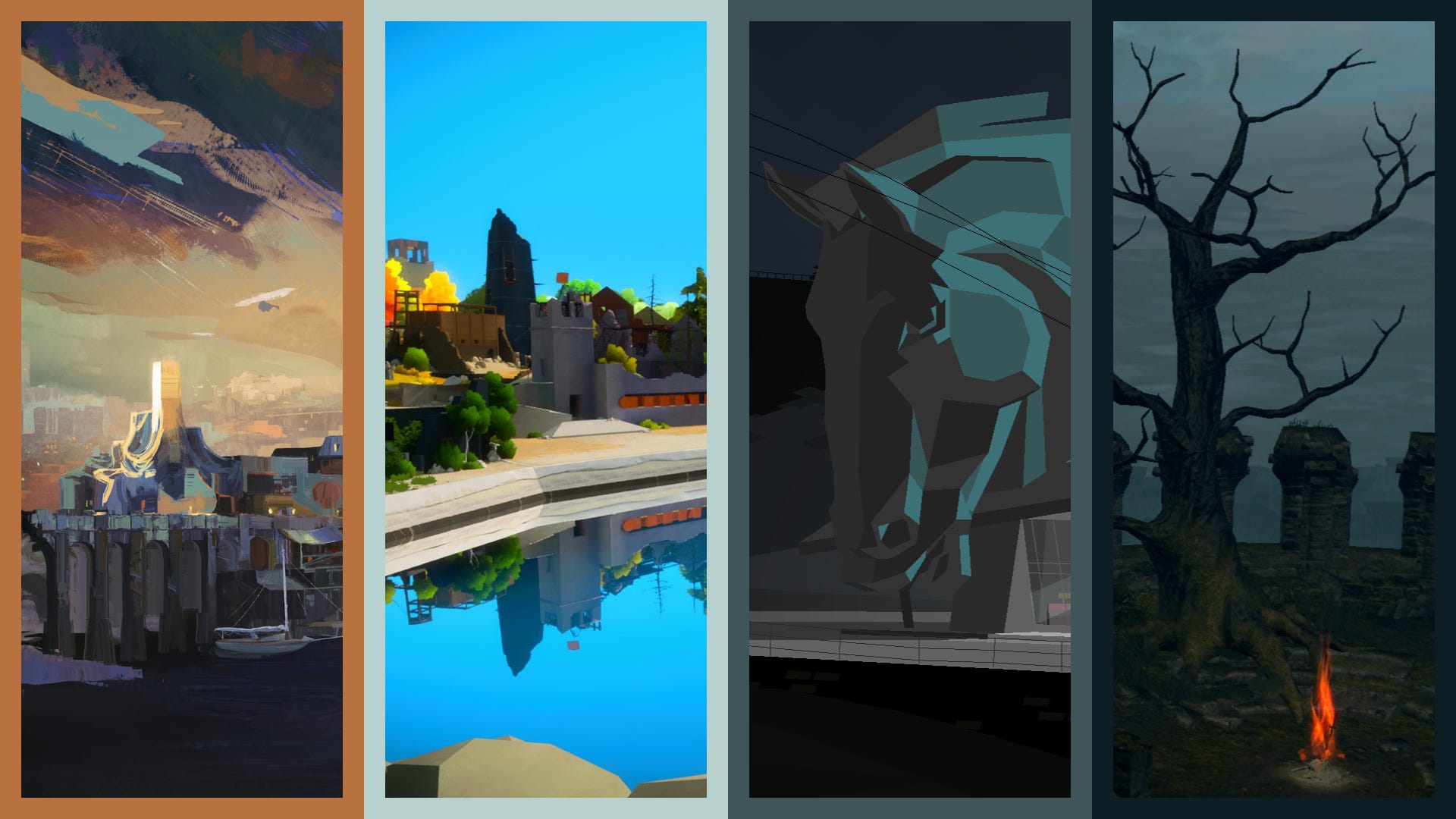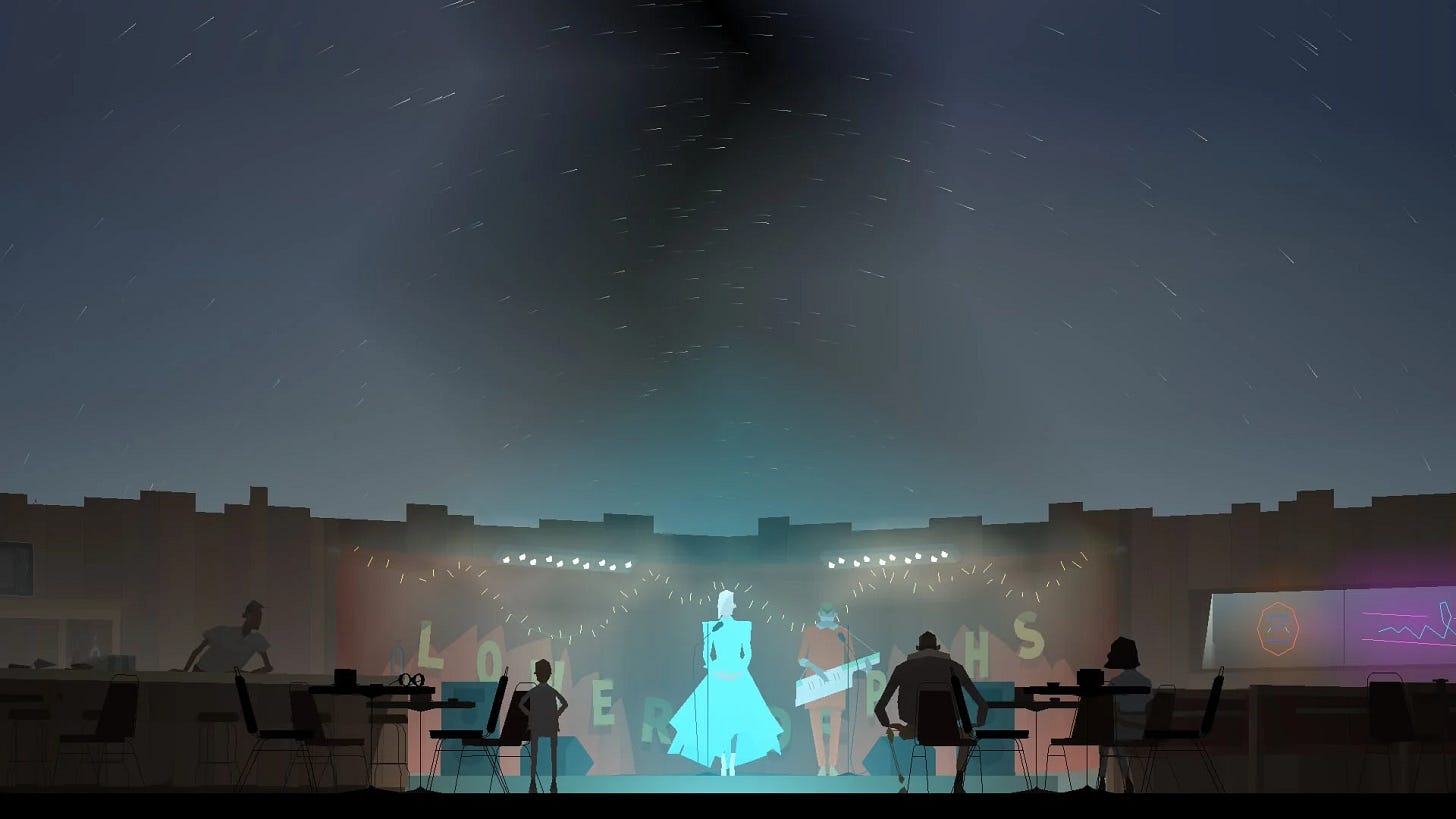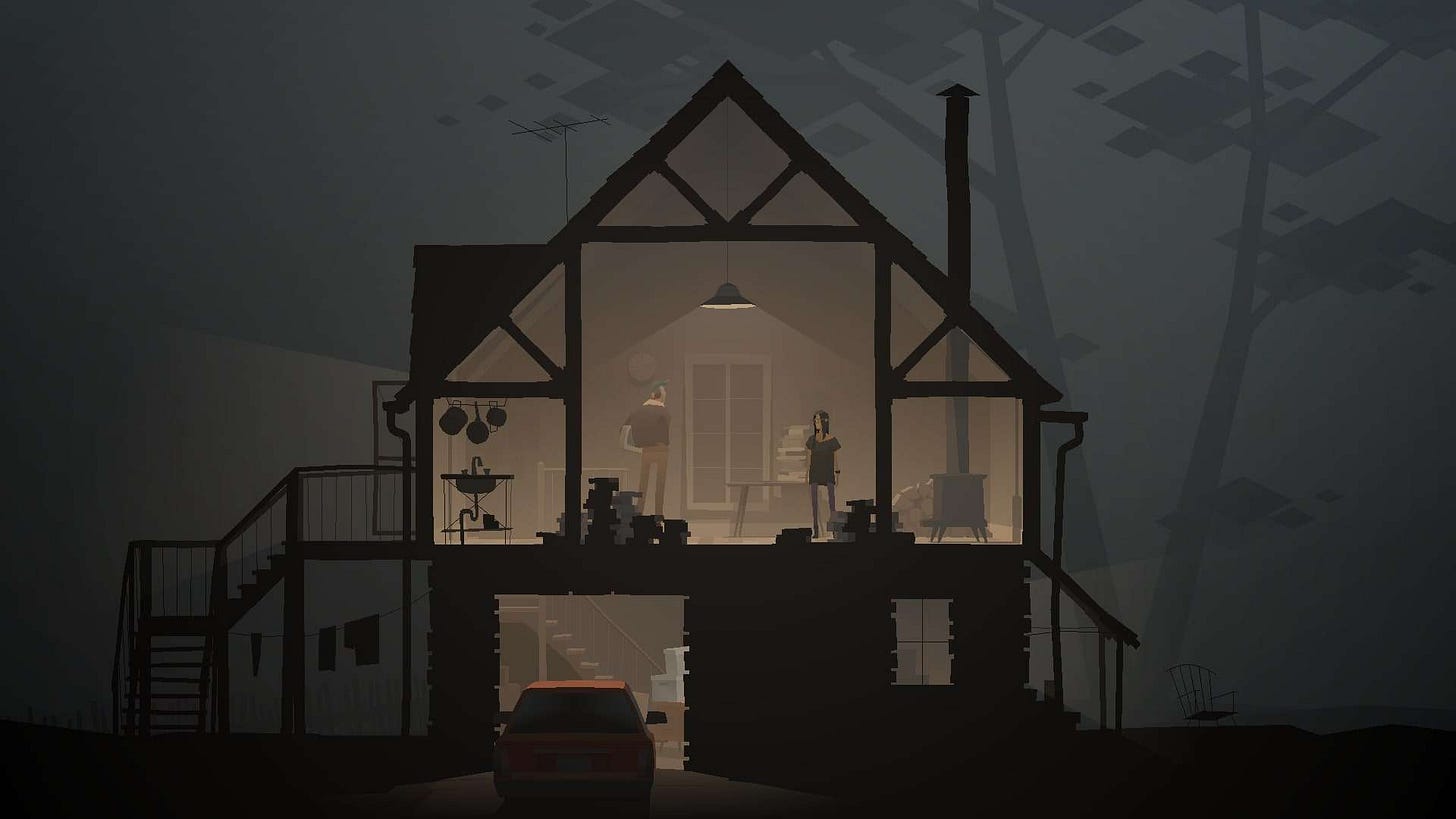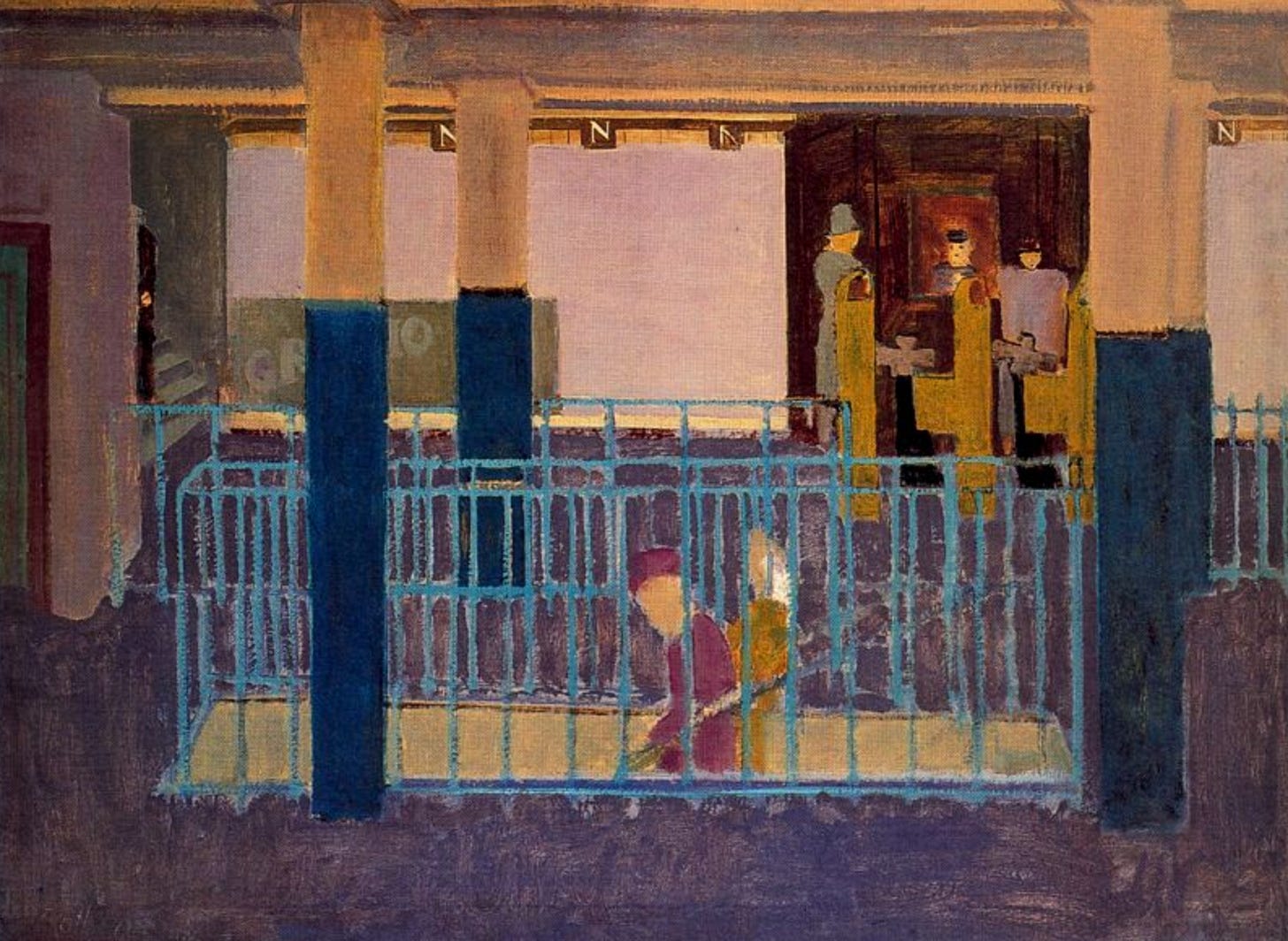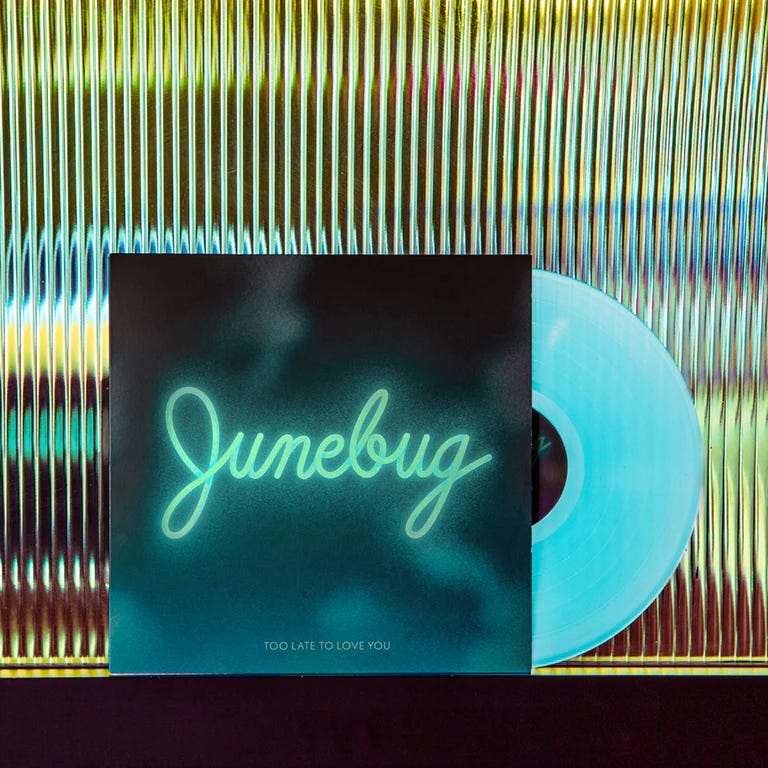Four Games That Changed My Brain Chemistry, Part 3: Kentucky Route Zero
Spoiler warning: This essay contains few spoilers for Kentucky Route Zero
Kentucky Route Zero
"I'm not gonna talk about Judy, in fact we're not gonna talk about Judy at all, we're gonna keep her out of it!" - Phillip Jeffries [Twin Peaks]
I'm not gonna talk about the themes and the story of Kentucky Route Zero. We're gonna keep her out of it!
For a good reason.
What I will say, though, is that Kentucky Route Zero is probably best described as an interactive screenplay composed of five acts. It’s a point-and-click video game where you make choices, but these choices do not alter the narrative—only the setting. I find this to be a fascinating inversion of the established approach of giving the player agency to change outcomes. You spend the majority of your time reading large blocks of text overlaid on a 2D presentation. If you’re not comfortable with this, then KRZ might be a hard one to digest.
The game is set in Kentucky and seems to be about delivering a package to elusive 5 Dogwood Drive, much like Twin Peaks is ostensibly about solving the murder of Laura Palmer, or The Curse (2023) is about making an eco-living documentary. But just as Twin Peaks and The Curse are about much more than their literal plots, Kentucky Route Zero is not really about the package at all. There’s no simple way to consolidate what this game is truly about in few digestible sentences, my attempt to describe its commentary on community, debt, company towns, grief will never feel as profound as experiencing them in the game itself, not even close. The tone and atmosphere are the game; it’s its own genre… it’s a vibe.
But words are never meant to convey the absolute truth; they are constructs to express our consciousness within the confines of their framework. Nothing I say about Kentucky Route Zero will ever be True in an absolute sense. If I were to stay True, I would have to remain silent. But if I remain silent, then I am a coward for not speaking at all.
So, this is the best I can do: Kentucky Route Zero is a quintessential piece of Americana, a work that feels distinctly "Lynchian." It stands as one of the most important video games of this decade, where writing, music, and visual imagery converge to create something greater than the sum of its parts.
When you play Kentucky Route Zero, time seems to slow down. You don’t follow the narrative through the rigid discipline of logic; instead, you are guided by intuition, by your own Inland Empire. It’s much like watching a Lynch film, where the interplay between the mundane and the supernatural, the exploration of the American family and community, shines brightly.
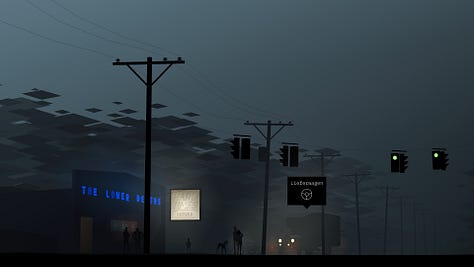

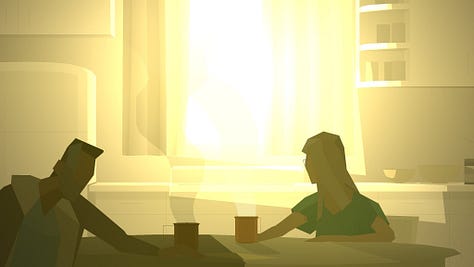
The game's visuals often channel Edward Hopper's depictions of isolation within the American landscape, whether it’s the rural quiet or the stark urban settings. The desolate gas stations, lonely diners, and solitary houses in Kentucky Route Zero seem like direct nods to Hopper's work—a sensibility David Lynch also taps into, lifting scenes straight from Hopper's paintings for Twin Peaks: The Return.
There's a distinct artistic influence beyond Hopper, too. The use of broad color fields, geometric abstraction, and minimalist compositions in the game draws heavily from abstract expressionism and minimalist art. The simple yet stark presentation of its landscapes and characters creates a mood that feels both familiar and intriguingly abstract, echoing some of Rothko's early work. I’d simply call it—dreamy.
The expressionist imagery of Kentucky Route Zero is intertwined with an ambient, experimental soundscape that evokes an eerie atmosphere, often conveying introspection, isolation, and a sense of otherworldliness. You can sense that Ben Babbitt's score draws heavily from minimalist composers like Philip Glass and ambient musicians like Brian Eno. The sound and music in KRZ hold particular significance for me because this is where the game truly came to be for me.
I remember it vividly—it was the summer of 2023, and I was playing on my Switch, sitting on the balcony. Events began to unfold on the small screen, and the fictional band Junebug started performing at a bar. The game prompted me to choose the beginning of the lyrics, granting me a surprising moment of agency. I picked a line, and the music began in earnest. I was enchanted by it, it felt ethereal, melancholic, romantic, dreamy, surreal. It was "Too Late to Love You" by Junebug, and for a moment, the game transcended its form and became something else entirely—pure, emotional resonance.
I listened to this music many times after that moment, becoming consumed and obsessed by it. It echoed the sounds of Julee Cruise, Chrystabell, and Rebekah Del Rio. It felt as though it was inviting me to a dark, dingy bar where the patrons, scattered and living their own lives, were momentarily united in this shared, waking dream.
For a while, I assumed "Too Late to Love You" was the only song by Junebug, the in-game band, as it was the only track featured in the game. It wasn’t until later that I discovered the complete album of Too Late to Love You, which includes 11 tracks in total. I hunted down the vinyl issued by iam8bit, and to this day, it remains the most significant record in my collection.
Junebug is not a real band; in fact it's entirely the work of game's composer, Ben Babbit, including the vocals!
Here’s where you can enjoy the live-action performance by Junebug, recording that exists outside Kentucky Route Zero:
Another similarity I’ve found is with David Lynch's The Straight Story. Yes, again, David Lynch is an American treasure. This film, which follows an elderly man traveling across the Midwest on a lawnmower, blends the ordinary with the profoundly human, capturing the strangeness and beauty of the American landscape—much like Kentucky Route Zero. In both works, the journey serves as a means of personal and narrative exploration. For Alvin Straight, it’s about reconciling with the past and understanding human connections, while in Kentucky Route Zero, it represents a deeper dive into societal and personal mysteries. The act of traveling is central to the stories being told.
I didn’t want to lay out the events of Kentucky Route Zero because it wouldn’t capture its essence or do it justice in any way whatsoever. Instead, I wanted to share the “vibes” of the game, hoping to invite players to experience and discover—or rediscover—it for themselves.
I want to wrap up the post by providing some music that further give impression of what playing KRZ feels like:

